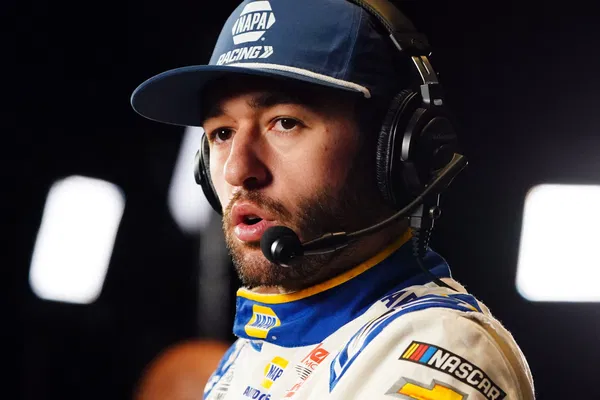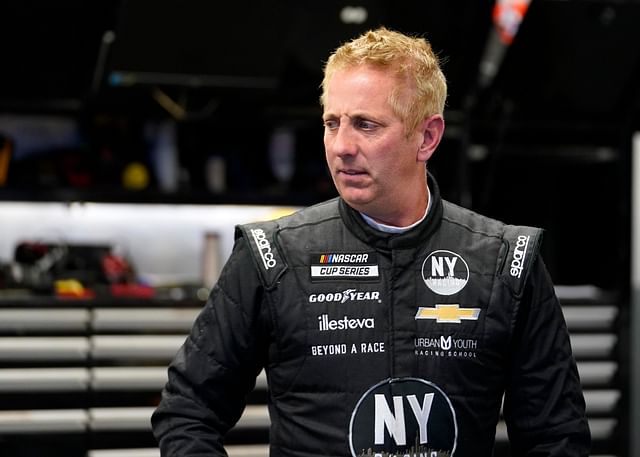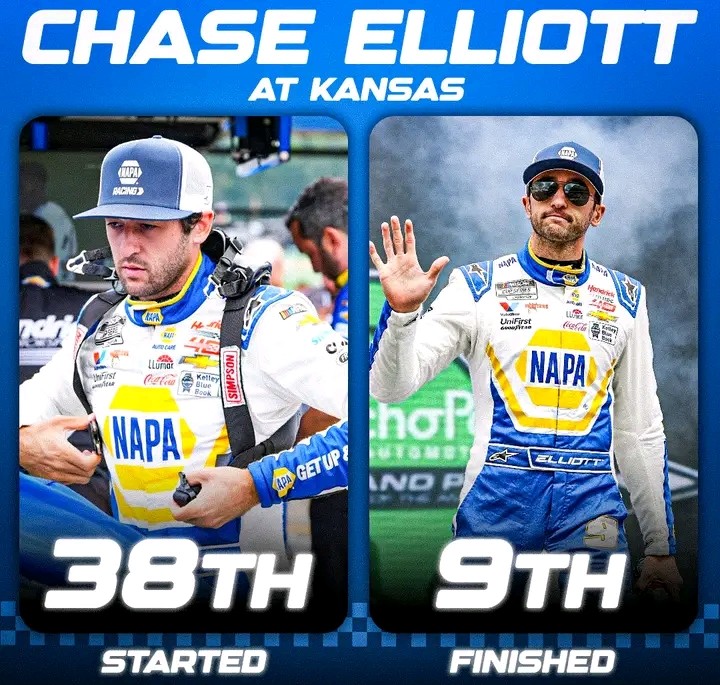In a significant turn of events in the NASCAR landscape, the Sanctioning Body has put forth a controversial and non-negotiable final offer regarding revenue sharing and governance (charter) extension. This decision, perceived by some as coercive, has sparked widespread debate among team owners and industry stakeholders. While 13 of the 15 teams involved signed the agreement, the two teams pursuing legal action against the sanctioning body, 23XI Racing and Front Row Motorsports, opted to reject it. This moment marks the culmination of two years of intense negotiations between NASCAR and its top-tier teams, revealing deep divisions and concerns about fairness within the sport.
Publicly, many team owners have been cautious in their statements, avoiding any explicit claims of coercion. However, Richard Childress, a veteran team owner and founder of Richard Childress Racing, has been more vocal about his apprehensions. Speaking to FOX Sports during the Talladega event, he expressed feeling cornered in a situation that required him to protect his business. “We’ve read it all, I can’t comment a whole lot now, because I know the attorneys are handling a lot of that,” Childress stated. “But I will say the part about, we got our DocuSign that evening at 6:37 PM ET is when it came in, and we had to sign it by 12 AM ET or we’d lose our charters. I didn’t have a choice because we had to sign. I have over 400 employees, OEM contracts, and contracts with sponsors, and I have to take care of my team.”
Childress’s remarks highlight the urgency and pressure that team owners felt in this situation. The tight deadline imposed by the sanctioning body left little room for negotiation or deliberation. Many team owners, including Childress, felt that their livelihoods were at stake. “I don’t know how you phrase happy on this,” he added, reflecting the broader sentiment among those who signed the agreement. “I would just say that I don’t think we can join; I don’t know. It’s way too early to talk about the legal stuff. NASCAR hasn’t even come back with an answer; I’m sure they’re looking at antitrust attorneys. I know they are. And we’ll go from there.”
The legal ramifications of this situation are significant, especially considering the potential impact on the teams involved. Childress articulated a conviction that if 23XI Racing and Front Row Motorsports were to secure a more favorable deal through their litigation, it would also extend to all teams, including those that did not join in the lawsuit. “I think it will by the law, but the way we don’t have a favored nation in our Charter, which is not fair to me, anyway,” he asserted. “Because everybody should be treated equally.”
This sentiment underscores a critical issue in the negotiations: the absence of a Most Favored Nation (MFN) clause. An MFN clause in a contract provides one party with the legal right to terms and benefits that are at least as favorable as those granted to any other party entering into a similar agreement with the other party. Childress’s assertion that all teams should be treated equally resonates with many team owners who believe that the lack of transparency and fairness in these negotiations has put their businesses at risk.
Childress’s concerns extend beyond contractual obligations; they also touch on the broader competitive landscape of NASCAR. “How do I know they’re not going to give someone a bigger restrictor plate, or how would I know they’re not going to pay someone $20 million more than me?” he questioned. “We don’t know without a favored nation.” This fear of unequal treatment could foster resentment among teams and create an uneven playing field that undermines the integrity of the sport.
The legal strategy that 23XI Racing and Front Row Motorsports are pursuing will hinge on demonstrating that NASCAR acted in a monopolistic manner by compelling teams to sign a disadvantageous agreement. Their legal team, led by attorney Jeffrey Kessler, will argue that the lack of competition in the market for these teams left them with no viable options other than to accept the terms presented. This argument highlights the broader dynamics of power within the sport, with the sanctioning body exerting significant control over the teams it governs.
The involvement of high-profile figures such as Childress in the discourse surrounding this issue adds weight to the legal argument. His willingness to speak out publicly about the pressures faced by team owners will likely be incorporated into the broader narrative of the case. As one of the most respected figures in the NASCAR community, Childress’s insights carry considerable influence and could sway public opinion on the matter.
Moreover, this legal battle has the potential to reshape the relationships between teams and the sanctioning body in the long term. If the courts find in favor of 23XI Racing and Front Row Motorsports, it could pave the way for more equitable terms and conditions for all teams involved. This outcome could fundamentally alter the landscape of NASCAR, fostering an environment where teams feel more empowered to negotiate terms that reflect their contributions to the sport.
On the flip side, a ruling that favors NASCAR could entrench the current power dynamics, leading to further dissatisfaction among teams that feel marginalized by the decision-making processes of the sanctioning body. As the case unfolds, it will be crucial to monitor the reactions from other teams and stakeholders within the NASCAR ecosystem. The implications of this legal battle extend far beyond the immediate financial concerns; they raise fundamental questions about fairness, equity, and the future of competition in the sport.
In summary, the recent developments surrounding the revenue sharing and governance charter extension in NASCAR highlight the complexities of negotiations and the power dynamics at play within the sport. Richard Childress’s candid remarks reflect the sentiments of many team owners who feel cornered and pressured into signing agreements that may not be in their best interest. The absence of a Most Favored Nation clause raises critical questions about fairness and equality among teams, while the potential legal battle between 23XI Racing, Front Row Motorsports, and the sanctioning body underscores the need for a more competitive and equitable framework within NASCAR.
As the situation continues to evolve, all eyes will be on the outcome of the legal proceedings and their impact on the future of NASCAR. The outcome could redefine the relationships between teams and the sanctioning body, shaping the landscape of the sport for years to come. In this high-stakes environment, the need for transparency, fairness, and equal treatment among teams has never been more critical, as NASCAR navigates the challenges of maintaining a competitive and thriving racing series.
“Richard Childress Forced into NASCAR Charter Agreement: No Choice But to Comply!”




